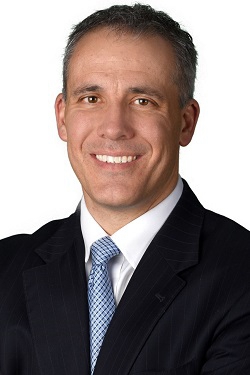 Flat feet may be a temporary condition for some patients, but it can cause debilitating pain in others. If conservative treatments are insufficient to correct flat feet, you may need reconstruction surgery to restore your balance and mobility. At Advanced Foot & Ankle, our flatfoot correction procedures help countless patients get back on their feet and return to the activities they love.
Flat feet may be a temporary condition for some patients, but it can cause debilitating pain in others. If conservative treatments are insufficient to correct flat feet, you may need reconstruction surgery to restore your balance and mobility. At Advanced Foot & Ankle, our flatfoot correction procedures help countless patients get back on their feet and return to the activities they love.
How Does Fusion Surgery Help Flat Feet?
Fusion surgery (arthrodesis) is commonly used to correct flat feet in patients with arthritis. The procedure permanently stabilizes the bones in the foot with metal screws to prevent the joints from moving, relieving the pain of arthritis. It may also be used to realign bones in the heel, big toe, or middle of the foot.
While the exact procedure varies from patient to patient, fusion surgery typically involves:
- Anesthesia. The procedure is done under general anesthesia and may involve an injection in the leg to numb the foot after surgery is complete. Once the damaged joints are removed, the bones will be fused with screws (plates or extra bone fragments are sometimes needed). In many cases, the patient may need only one or two incisions on the foot.
- Casting. After surgery, your foot may be in a plaster cast up to the knee. Your podiatrist will discuss the surgery with you, make a follow-up appointment, and prescribe any painkillers you may need. You will also be advised on keeping weight off your foot when walking, how to shower without getting the cast wet, and potential sleeping positions to relieve pressure on your leg.
- Rest and elevation. Your foot will need proper rest to heal in the first few weeks. Elevate the affected foot as often and as much as possible to reduce swelling, and avoid activities that can impair healing (such as smoking). You will likely be instructed to walk as little as possible and may have to take time off work.
- Post-operative appointments. After 2-3 weeks, your podiatrist will perform a wound check and x-ray to see if the bones are fusing as expected. After 5-6 weeks, you might be able to have the cast removed and switch to a boot or lightweight cast that can be used with crutches. Once the cast is removed, you may be advised not to pull at scabs or attempt to remove visible stitches. If the wound becomes red, tender, or swollen, you should call your podiatrist for an emergency appointment to ensure there is no infection.
- Physiotherapy. After 8-10 weeks, you may be able to bear weight on the foot and start transitioning out of the lightweight cast. You may need physical therapy to reassess your gait, massage the wound, increase your range of motion, and reduce muscle tightness. Pain should improve steadily as the joints fuse, which can take up to 12 weeks. After three months, you may start wearing normal shoes and bearing weight on the foot as you normally would.
- Full return to activity. Most people with sedentary jobs can work after 3-4 weeks, but those who perform manual labor or stand while working may need more than 12 weeks to heal fully. After six months, patients should be able to achieve a similar level of activity they performed before the surgery. They will likely be able to play sports or engage in heavy exercise 10-12 months after the procedure. Your physiotherapist will guide you through the specific stages of your rehabilitation and give you a customized timeline for recovery.
Our Podiatry Team Stays With You Throughout the Healing Process
Once we devise the best procedure for you, we schedule a series of follow-up appointments to ensure your healing is progressing without complications. Throughout your recovery, we are always available to assess your condition and advise you on how to care for your feet.
If you’re tired of living with painful flat feet, our Idaho podiatry team can start your treatment immediately. Simply request an appointment online or speak with our staff in Twin Falls (208) 731-6321.
|
Related Links: |

